Top 10 Best Audiobooks for Schools [2025]
by ePlatform Collection Management | 八月 06, 2025 | Categories : Americas Asia AU & NZ Articles News UK & Europe
Estimated reading time: 7 minutes | Last updated: August 2025
If you're looking to improve student engagement and literacy outcomes, audiobooks are a great place to start. They’re easy to use, support diverse learners, and can make a big difference for reluctant readers.
Audiobooks are professionally narrated versions of books that students can listen to on any device, whether at home, in class, or on the go. But with so many options out there, it can be hard to know which ones are actually worth adding to your school library.
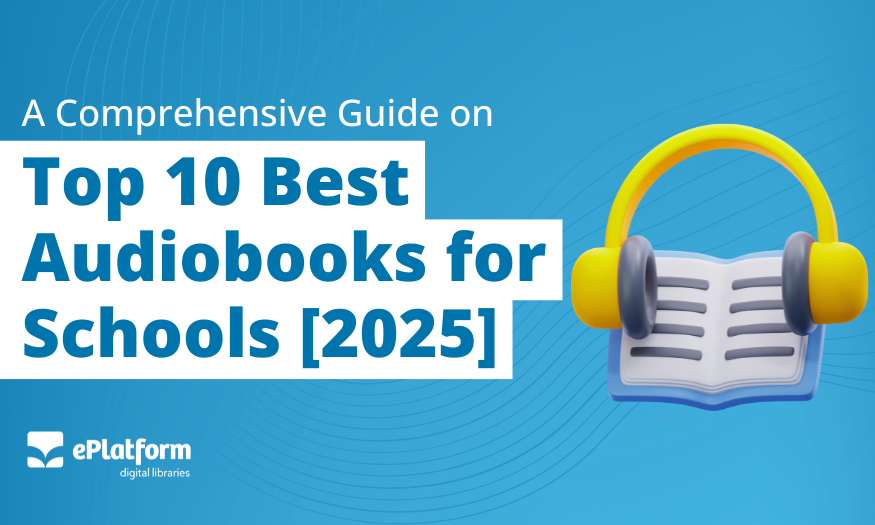
To help you decide, we’ve put together the top 10 best audiobooks for schools in 2025. Browse the list and find the ones that fit your students best.
Key Takeaways:
- Choosing the right audiobooks tailored to your students’ age, ability, and curriculum goals can significantly boost reading engagement and comprehension outcomes.
- Incorporating audiobooks with strong narrative performance and educational value can enhance classroom learning by supporting literacy, vocabulary, and listening skills.
- Audiobooks that align with required texts or popular series allow teachers to meet curriculum needs while inspiring a love of reading across diverse student groups.
Table of Contents
- How to Choose the Best Audiobooks for School Libraries
- Audiobook Features That Make a Difference in the Classroom
- Top 10 Best Audiobooks for Schools
- FAQs
- Final Thoughts
How to Choose the Best Audiobooks for School Libraries
As you explore different audiobook options, there are a few key questions to help you decide which titles are the best fit for your students and school curriculum.
- Are the audiobooks age-appropriate and engaging? Make sure the content suits your students’ reading level and interests. A great narrator and high-quality audio production can make a huge difference in keeping students engaged.
- Are the titles curriculum-aligned? Look for audiobooks that support what students are learning in class. This could include set texts, historical fiction, science-based nonfiction, or books that match key themes in your curriculum.
- Will these audiobooks support diverse learners? Audiobooks can help students with dyslexia, ADHD, and EAL (English as an Additional Language). Make sure the options you choose are inclusive and helpful for students who learn differently.
- Can students access them easily? Whether you use a digital platform like ePlatform or another system, accessibility matters. Students should be able to borrow and listen with minimal friction, on school devices or their own.
- Are they popular and well-reviewed? Consider what other schools are using and what students are actually reading (or listening to). Top-performing titles often have wide appeal and come recommended by teachers and librarians alike.
Audiobook Features That Make a Difference in the Classroom
If you want audiobooks to support real learning outcomes, not just fill time, you need to choose ones with features that work well in a classroom setting. These features can enhance comprehension, engagement, and accessibility for all students.
- Professional Narration: Clear, expressive narration helps students stay engaged and improves understanding, especially for younger listeners or those new to the text.
- Playback Speed Control: Letting students slow down or speed up narration supports learners at different reading levels and helps them better process what they’re hearing.
- Bookmarks and Notes: These tools make it easy to revisit key sections or jot down thoughts. Great for group discussions, assignments, or comprehension checks.
- Built-in Text Highlighting: Some platforms sync the audio with on-screen text, which reinforces decoding and supports students who benefit from visual cues.
- Offline Access: Not every student has constant internet access. Being able to download audiobooks for offline use makes them more accessible both at school and at home.
- Multi-Device Support: Whether students are using laptops, tablets, or phones, audiobooks should work seamlessly across devices, especially in BYOD schools.
Top 10 Best Audiobooks for Schools
Let’s help you find the best audiobooks for your school library so students stay engaged, inspired, and reading year-round. Browse these 10 titles to see which ones are right for your classroom or library shelves.
1. Harry Potter and the Philosopher’s Stone by J.K. Rowling
Few stories have captured young imaginations quite like Harry Potter. This first book in the series introduces readers to the magical world of Hogwarts, following Harry as he discovers his true identity and begins his journey as a wizard. Its engaging plot, vivid characters, and strong themes of friendship and courage make it a top pick for school libraries.
This audiobook, narrated by Stephen Fry, brings the magic to life with distinctive voices and immersive narration that students love.
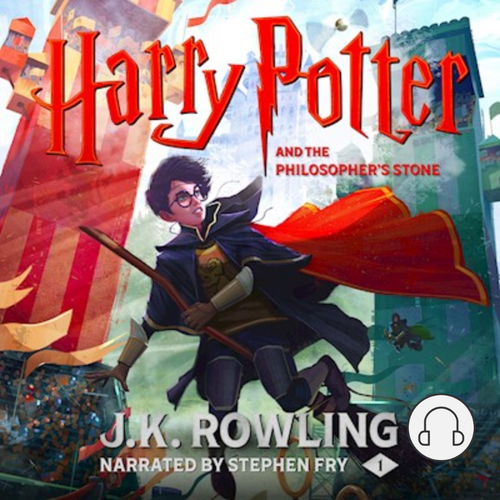
Why it's great for schools: The Harry Potter series remains one of the most popular book choices among students. It encourages reading stamina and builds vocabulary, especially for upper primary and lower secondary students. The audiobook is also ideal for students who struggle with decoding but still want to access complex and imaginative stories.
Teaching opportunities: Best suited for students aged 10 to 14. Use this audiobook to explore character development, plot structure, and descriptive writing techniques. It also serves as a great anchor text for discussions about identity, belonging, and perseverance. Teachers can pair listening activities with creative writing prompts or classroom debates on character choices.
2. To Kill a Mockingbird by Harper Lee
Harper Lee’s To Kill a Mockingbird remains one of the most powerful explorations of racial injustice and moral growth in American literature. Set in the Deep South during the 1930s, the novel follows Scout Finch as her father defends a Black man falsely accused of a crime. Through Scout’s perspective, readers witness both the innocence of childhood and the harsh realities of prejudice.
The audiobook format enhances the emotional depth of the narrative, bringing new life to key moments of tension, empathy, and reflection. Its storytelling power and social relevance continue to resonate today.
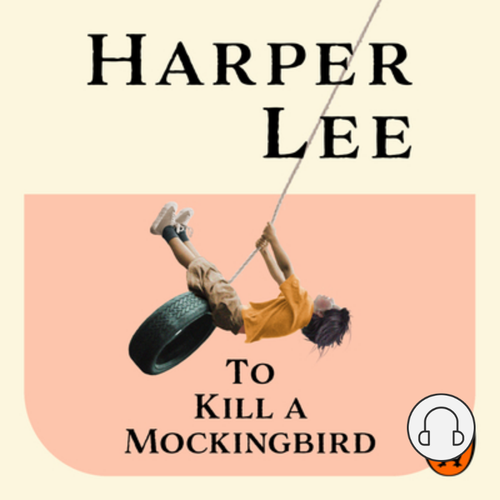
Why it's great for schools: A classic in many school curriculums, To Kill a Mockingbird is widely recognized for its ability to prompt meaningful conversations around justice, empathy, and moral courage.
Teaching opportunities: Best suited for Year 9–11 students. The novel offers rich material for exploring character development, point of view, and historical context. It’s also a valuable text for cross-curricular links between English and humanities, particularly American history and civil rights.
3. The Hunger Games by Suzanne Collins
The Hunger Games kicks off a gripping dystopian trilogy that has captivated teen readers for over a decade. The story follows Katniss Everdeen, a teenager forced to compete in a televised fight to the death, as she navigates survival, rebellion, and sacrifice in a broken society. Collins’ world-building is immersive, and her fast-paced narrative keeps listeners hooked from the first chapter.
The audiobook version captures both the intensity of the action and the emotional weight of Katniss’s inner turmoil. It’s an excellent entry point for students who enjoy high-stakes storytelling and thought-provoking themes.
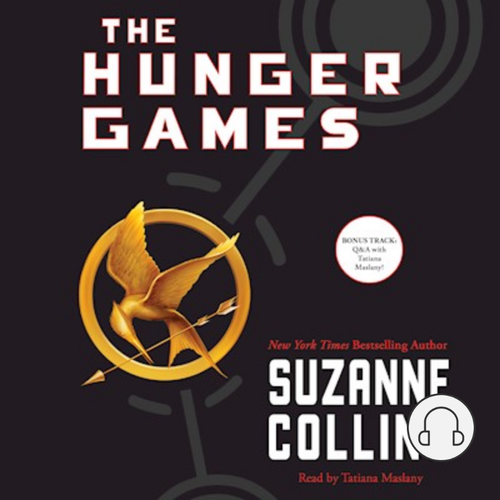
Why it's great for schools: A popular choice in secondary schools, this novel appeals to reluctant readers thanks to its strong protagonist, suspenseful plot, and timely political themes like inequality, media manipulation, and resistance.
Teaching opportunities: Ideal for Year 8–10 students. Teachers can use it to explore dystopian conventions, first-person narration, and the hero’s journey. It also opens up discussions around ethical decision-making, class systems, and the role of propaganda in society.
4. Percy Jackson and the Lightning Thief by Rick Riordan
This is the first book in the hugely popular Percy Jackson series, blending Greek mythology with modern-day adventure. The story follows 12-year-old Percy, who discovers he’s a demigod and is whisked into a world of gods, monsters, and quests. It’s witty, fast-paced, and full of heart, making it a perennial favorite among middle school readers.
The audiobook version brings the characters to life with engaging narration that captures Percy’s sarcastic charm and the thrill of his journey.
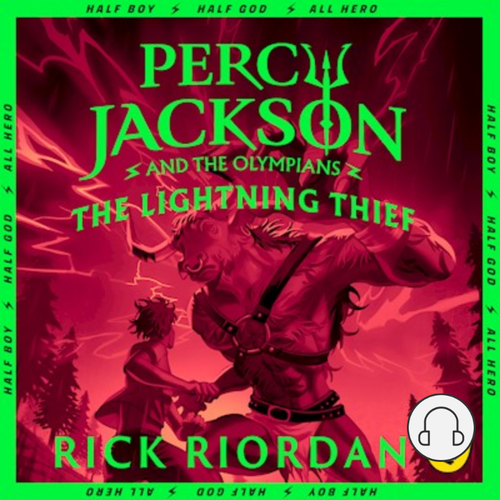
Why it's great for schools: Perfect for hooking students who are fans of action, humor, or mythology. Its accessibility and relatable protagonist make it a great bridge for students transitioning from chapter books to more complex narratives.
Teaching opportunities: Best suited for Year 5–8 students. This book is a fantastic springboard for introducing Greek mythology, discussing hero archetypes, and exploring identity and belonging. It also offers opportunities for cross-curricular learning in English and History.
5. 1984 by George Orwell
A chilling dystopian novel that remains as relevant today as it was when first published. 1984 explores themes of government surveillance, censorship, propaganda, and the loss of individual freedom in a totalitarian state. Orwell’s vision of a controlled society sparks powerful discussions about truth, autonomy, and resistance.
The audiobook version, narrated by Simon Prebble, delivers a compelling and intense performance that draws listeners into Winston Smith’s world with precision and urgency.

Why it's great for schools: 1984 encourages critical thinking and media literacy, pushing students to question authority, societal norms, and the impact of language on thought. It’s a springboard for cross-curricular discussions in English, History, and Civics.
Teaching opportunities: Best suited for students aged 15 and up, this audiobook aligns well with senior secondary English curricula. Teachers can use it to explore persuasive language, allegory, political commentary, and character development. It’s also a valuable text for discussing historical parallels and ethical dilemmas.
6. The Hobbit by J.R.R. Tolkien
This classic fantasy tale takes students on a journey through Middle-earth with Bilbo Baggins, a reluctant adventurer who finds courage, cleverness, and unexpected strength. The Hobbit blends rich world-building with action, humor, and deep moral undertones. It’s a standalone story that also serves as a gateway to Tolkien’s wider works.
The audiobook, narrated by Rob Inglis, is widely praised for its performance and musical narration, making it a captivating listening experience for students.
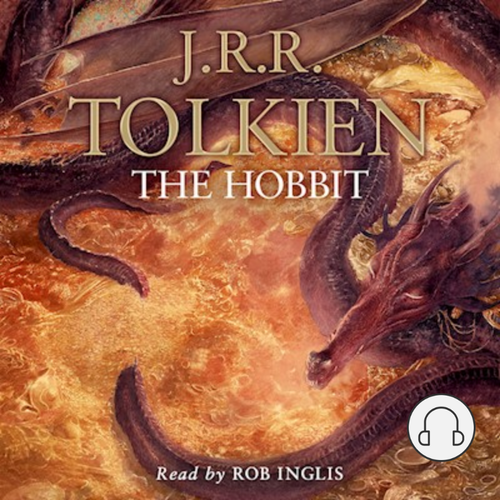
Why it's great for schools: The Hobbit is perfect for introducing students to the fantasy genre. It supports comprehension skills through its layered narrative, introduces classic literary tropes like the hero’s journey, and helps students grapple with more advanced vocabulary in context.
Teaching opportunities: Ideal for students aged 11 to 15, this audiobook can be used to discuss character transformation, narrative arcs, and moral decision-making. Teachers can also explore themes like bravery, greed, and leadership, making it suitable for both English and humanities lessons.
7. Atomic Habits by James Clear
This bestselling non-fiction book breaks down the science of habit formation into practical, actionable advice. James Clear uses research-backed strategies to show how tiny changes can lead to remarkable results over time. His framework for building good habits and breaking bad ones has resonated with readers across the world.
The audiobook, narrated by Clear himself, has a conversational tone that makes complex ideas feel accessible and motivating. It's engaging without being overwhelming—perfect for teens navigating routines and goal-setting.
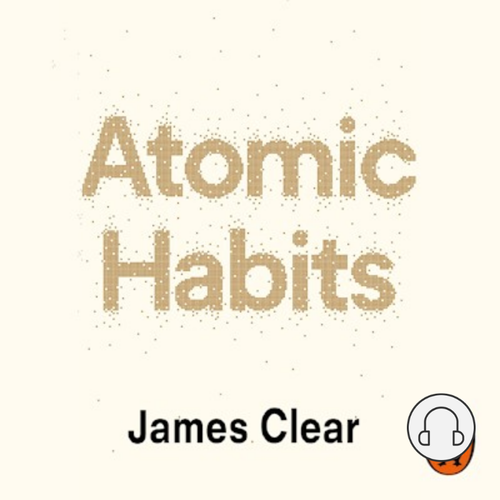
Why it's great for schools: Atomic Habits equips students with life-long tools for self-improvement. It encourages personal responsibility, resilience, and reflection—skills that support both academic and personal growth. The audiobook format makes the concepts even more digestible for busy or reluctant readers.
Teaching opportunities: Ideal for students aged 14 and up, especially in pastoral care, wellbeing programs, or life skills courses. Teachers can use it to spark discussions about mindset, motivation, and behaviour change. It pairs well with reflective writing exercises or goal-setting activities in advisory classes.
8. Lord of the Rings: The Fellowship of the Ring by J.R.R. Tolkien
The Fellowship of the Ring is the first volume in Tolkien’s epic Lord of the Rings trilogy. It follows Frodo Baggins as he begins a perilous journey to destroy the One Ring—a powerful artifact sought by dark forces. The world of Middle-earth is richly detailed, filled with lore, languages, and a deep sense of history.
The audiobook, narrated by Rob Inglis, is a standout performance. His steady pacing, dramatic tone, and ability to bring different races and characters to life make this an immersive listen for older students.
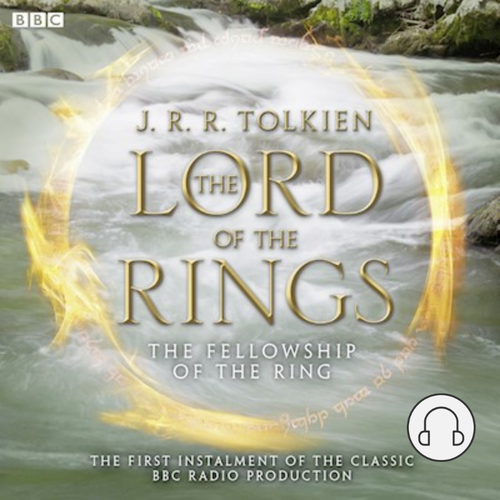
Why it's great for schools: A literary classic that introduces students to high fantasy, complex world-building, and enduring themes like sacrifice, bravery, and friendship. It’s also a great example of narrative structure and long-form storytelling.
Teaching opportunities: Best suited for Years 9–12. Teachers can explore narrative archetypes, character development, symbolism, and allegory. The text also supports cross-curricular links to mythology, history, and even linguistics.
9. Animal Farm by George Orwell
Animal Farm is a political allegory that uses farm animals to satirize the rise of totalitarianism. What begins as a hopeful revolution soon spirals into oppression, as the pigs who lead the rebellion become indistinguishable from the tyrants they overthrew. Orwell’s clear, concise prose makes the story accessible while packing a powerful punch.
The audiobook version amplifies the message with precise narration that captures the tone of propaganda, manipulation, and shifting power dynamics. It’s an essential listen for introducing students to allegorical storytelling.
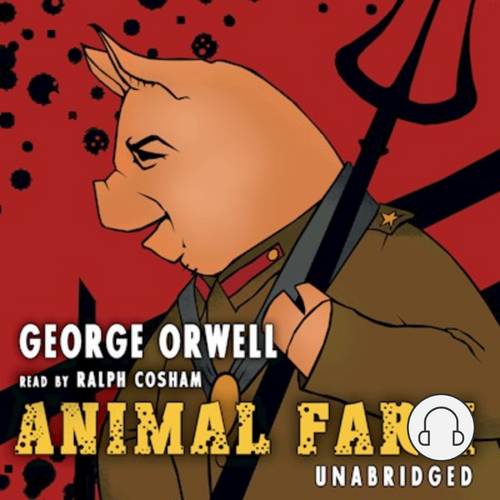
Why it's great for schools: Animal Farm encourages critical thinking about power, leadership, and societal structures. It’s short, engaging, and layered with meaning—ideal for classroom discussion.
Teaching opportunities: Suitable for Year 9–11 students. Teachers can use the novel to explore historical revolutions (especially the Russian Revolution), propaganda, and persuasive language. It’s also a strong fit for units on satire, allegory, or political commentary in English and history.
10. Dune by Frank Herbert
A cornerstone of science fiction, Dune is an epic tale of politics, power, and survival set on the desert planet of Arrakis. It follows Paul Atreides, a young noble thrust into a struggle over a valuable resource that could change the fate of galaxies. With themes of environmentalism, leadership, and prophecy, it’s both thrilling and thought-provoking.
The audiobook brings this sweeping universe to life with rich narration and immersive sound design. For students who enjoy fantasy or sci-fi, it’s a powerful example of world-building and narrative complexity.
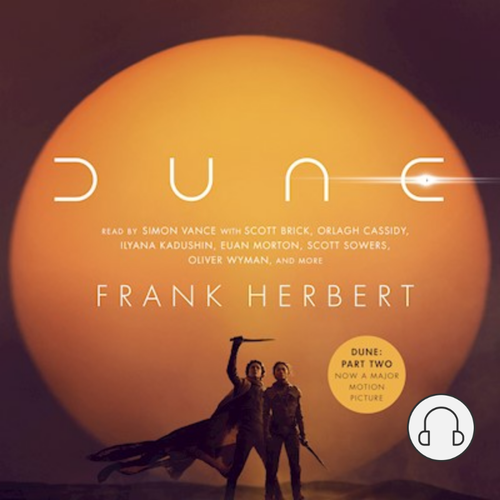
Why it's great for schools: Dune challenges advanced readers to think critically about ecology, religion, and social structures. It’s perfect for older students ready to tackle more complex ideas and layered storytelling.
Teaching opportunities: Recommended for Year 10–12 students. The book opens discussions about environmental ethics, political power, and cultural imperialism. It can be studied in English literature classes or explored in cross-curricular settings with humanities and science.
FAQs
Why do schools need Audiobooks for students?
Audiobooks give schools an easy way to support diverse learners and boost engagement with reading. They’re especially helpful for students with learning differences or low confidence, and they make it possible to deliver high-quality literacy support without adding to teacher workloads.
How do Audiobooks help improve literacy and comprehension?
Audiobooks build critical skills like vocabulary, fluency, and listening comprehension by exposing students to rich language and expressive narration. They also model proper phrasing and intonation, helping students better understand the rhythm and meaning of what they hear.
How do schools choose the right Audiobooks for thier students?
The best approach is to select age-appropriate titles that are both relevant to the curriculum and appealing to students. With ePlatform, schools can access professionally curated audiobook collections tailored by school location and student year level, making it easier to find the right fit.
What devices do schools need to access Audiobooks?
Most digital audiobook platforms work seamlessly on Chromebooks, iPads, laptops, and phones, with no special hardware required. Students just need internet access and headphones, though many platforms also offer offline access for flexible listening at home or on the go.
Is every book available as an Audiobook?
Not every book has an audiobook version, but most major titles and curriculum-linked reads are widely available. Schools using a platform like ePlatform get instant access to thousands of professionally narrated audiobooks with new releases added regularly.
Final Thoughts
Audiobooks are no longer a nice-to-have for school libraries. They’re a powerful tool for improving literacy, boosting engagement, and supporting diverse learners. Whether you're catering to reluctant readers, busy students, or those with additional learning needs, the right audiobook can make all the difference.
Start with professionally curated collections, focus on age-appropriate titles, and look for features that support both teachers and students. When used well, audiobooks don’t just supplement reading, they transform it.
